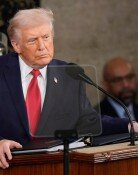Pyongyang Should Conform to Economic Cooperation Principles
Pyongyang Should Conform to Economic Cooperation Principles
Posted February. 04, 2008 03:04,
In an interview with major newspapers of Korea, the United States, and Japan, including the Dong-A Ilbo on Feb. 1, President-elect Lee Myung-bak declared the four principles which will serve as the basis for future economic cooperation with North Korea. He also announced that he would classify what has been agreed between the current government and North Korea into priority, non-priority and off-the-table projects considering how much progress is made on denuclearization efforts, economic feasibility of each project, the administrations finances and the national consensus. Reflecting Lees sense of pragmatism, these principles are headed in the right direction in the overall framework for North Korea policy. We expect North Korea to positively respond and react to them.
The essence of Lees North Korea policy lies in his Denuclearized and Open North Korea 3000 initiative. In other words, he would create a North Korean development fund worth $40 billion if the North abandons its nuclear weapons and programs, and help raise the annual per capita income of North Koreans to $3,000. However, Lee did not make it clear in his plans how he would respond if the North does not give up on its nuclear ambitions. This is also why the leftists criticized his initiative as confronting, saying, Lee simply will not take any action until the North scraps its nuclear weapons and programs. The four principles come as an amendment to his initial plan.
These principles reflect Lees idea that he will control the pace and substance of future inter-Korean economic cooperation considering various circumstances including how well the North proceeds with its denuclearization efforts. They are distinct from former President Kim Dae-jung and President Roh Moo-hyuns idea of embracing the North unconditionally. The principles are based on the bitter reality that all South Korea received in return for its 10-trillion-won worth investment over the past decade to promote peace and economic cooperation on the peninsula was North Koreas nuclear test. It is also an encouraging sign that apart from implementing the four principles, Lee would seek changes in the inter-Korean relations through improving the relationship with the U.S. and Japan. He further announced that he would ask for the European Unions help in resolving North Korean nuclear issues.
What matters most here is whether Lee can draw up a detailed plan to execute his initiative. Even when the North proceeds well with its denuclearization efforts, there would be times when he would have to slow the pace of economic cooperation possibly due to lack of national consensus or economic feasibility, or vice versa. He should always be ready to make wise decisions, keeping in mind that the North Korean nuclear issue is a global matter and that the two Koreas have a unique relationship. The task will not be easy as it requires extreme agility and flexibility.
The Kim Jong-il administration should also adapt to the changes in the circumstances surrounding it. It is the only possible way to keep his regime intact. It is just about time that he wakes up from an illusion that possessing nuclear weapons and programs is panacea for all its problems. Kim must see the launch of the new South Korean government as North Koreas turning point.




![[단독]폴란드, 韓 해군 최초 잠수함 ‘장보고함’ 무상 양도 안받기로](https://dimg.donga.com/c/138/175/90/1/wps/NEWS/IMAGE/2026/02/27/133437397.1.jpg)


